21 hours ago
Peter Shuttleworth,BBC News

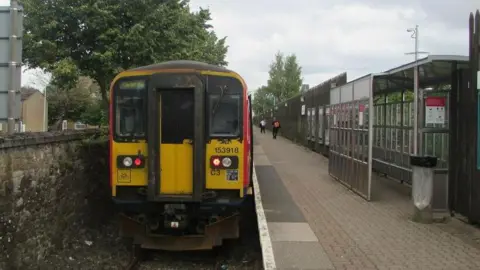 Jaggery | Geograph
Jaggery | Geograph
The one-platform, one-destination halt at Cardiff Bay is currently served mainly by older trains
It’s one of Wales' oldest railway stations and in the middle of a major city, but it’s among the worst connected in the UK - until now.
For the past 18 years, the only direct train you could get from the one-platform halt at Cardiff Bay is down the one-mile branch line to the country's second busiest station, Cardiff Queen Street.
If you wanted to go to or come from anywhere else, you'd have to change trains.
It’s currently one of only a few UK stations to have a direct link to just one station - but from next weekend that will change.
As well as going to Queen Street, from Sunday, some trains from Cardiff Bay will also go back and fore to seven other stations.
The additional stops form a new service that is included in the latest part of the £1bn investment into improving the rail network in Cardiff and the south Wales valleys.
The station was at the southern end of a line built in 1840 that helped make Wales one of the world’s greatest powers during the Industrial Revolution.
Built by Isambard Kingdom Brunel, one of railway’s most famous engineers, the Taff Vale Railway carried Wales’ greatest natural asset coal from the mines around Merthyr Tydfil to the docks in Cardiff to be exported around the world.

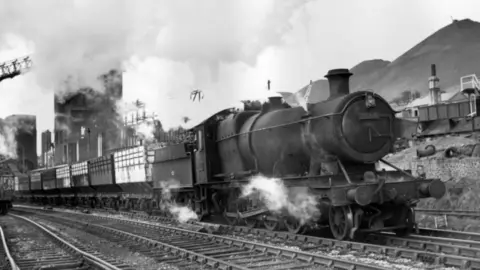 Getty Images
Getty Images
Transporting coal from the valleys to the docks at Cardiff was behind the birth of the railways in south Wales
Cardiff Bute Docks station, as it was known initially, was first mentioned in Bradshaw's railway timetables in 1844, a year before the station was renamed Cardiff Docks.
It was renamed Cardiff Bute Road in 1924 as the Taff Vale became part of the Great Western Railway when the decline of the coal and iron industries changed the dynamic of the line that also served passengers.
It was renamed for a third and final time to Cardiff Bay in 1994 and served the Welsh capital's regenerated waterfront district that includes bars and restaurants, the Wales Millennium arts centre and Welsh Parliament.
But the Grade II-listed station building was named one of the UK’s most endangered buildings in 2016.

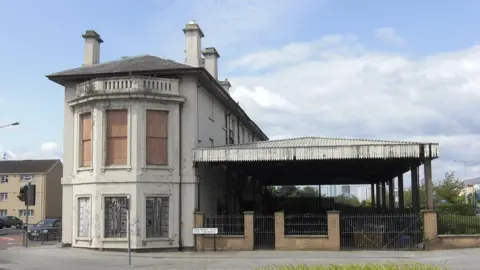 The Victorian Society
The Victorian Society
The historic Cardiff Bay Station was among the UK's most endangered buildings less than 10 years ago before it was restored
The Victorian Society said the station was "the home of the first steam-powered passenger train service in Wales and vital to the development of Cardiff into the important international port it became in the 19th century”.
It added that Cardiff Bay station was “an exceptionally early surviving example of purpose built railway architecture in Wales” and “one of the few remaining historic buildings” in Cardiff Bay.
Comedian and TV presenter Griff Rhys Jones, the Victorian Society’s vice president at the time, urged people to save "one of the oldest and most significant railway structures in Wales" and it was subsequently renovated.

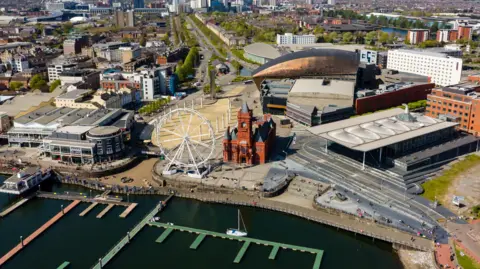 Getty Images
Getty Images
Cardiff Bay has become one of the most popular destinations in south Wales
For almost 20 years, Cardiff Bay has seen just a shuttle service going down the single-track branch from Cardiff Queen Street - and despite that, it was Wales' fifth busiest pre-pandemic with about 1.5m passengers a year.
Next weekend signals a change in Cardiff Bay’s connectivity as train operators Transport for Wales start a new service on Sunday between Pontypridd and Cardiff Bay - stopping at all stations in between, such as Radyr and Llandaf stations.
Frequency will, though, temporarily drop to five trains an hour but will become six again next year when the single track line becomes two and is electrified.

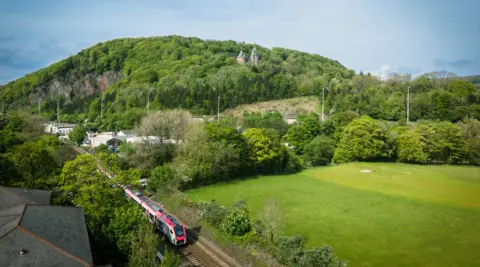 Transport for Wales
Transport for Wales
The new Cardiff Bay to Pontypridd service - past 19th Century Castell Coch above Tongwynlais - is one of the new routes introduced to the rail network in June
Cardiff Bay station will also get an additional platform, a new station is being built north at Butetown and new 256-people capacity three-carriage trains.
It will also be connected to the city's new £100m on-street tram service that will directly connect the bay with Cardiff's mainline Central train hub.
Construction for that project, fully-funded by Welsh and UK governments, is due to start next summer.

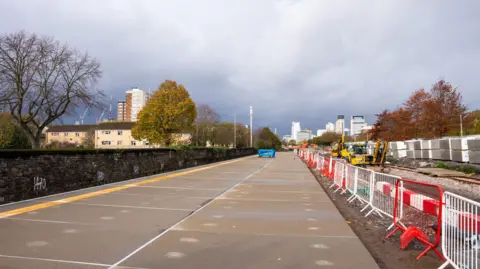 Transport for Wales
Transport for Wales
Engineers are building a second track on the Butetown branch and a second platform at Cardiff Bay Station

 Cardiff council
Cardiff council
There are plans for a £100m on-street tram to link Cardiff Central station and the city's proposed £250m arena in Cardiff Bay
The ultimate plan is for the Cardiff tram to link the city centre with the planned £250m indoor arena, which councillors hope can open in the bay in 2026, and a new Cardiff Parkway station on the east of the city.
It is hoped the new tram will be fully built in under five years ready for Cardiff to act as a host city when whe UK and Ireland stage football's 2028 European Championship.
“The Bay Line transformation project is an important part of the South Wales Metro," said Transport for Wales Chief Executive James Price.
"We’re delighted to be able to begin construction work on the brand-new station in Butetown, as well as important upgrades to Cardiff Bay station."

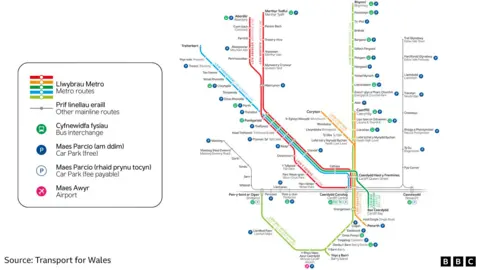 Transport for Wales
Transport for Wales
How the South Wales and Valleys line rail map will look after the 2 June timetable change

 9 months ago
42
9 months ago
42









